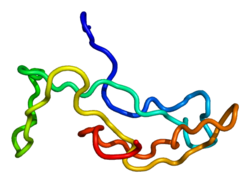| CGA | |||||||||||||||||||||||||||||||||||||||||||||||||||
|---|---|---|---|---|---|---|---|---|---|---|---|---|---|---|---|---|---|---|---|---|---|---|---|---|---|---|---|---|---|---|---|---|---|---|---|---|---|---|---|---|---|---|---|---|---|---|---|---|---|---|---|
 | |||||||||||||||||||||||||||||||||||||||||||||||||||
| |||||||||||||||||||||||||||||||||||||||||||||||||||
| Identifiers | |||||||||||||||||||||||||||||||||||||||||||||||||||
| Aliases | CGA , CG-ALPHA, FSHA, GPHA1, GPHa, HCG, LHA, TSHA, Chorionic gonadotropin alpha, glycoprotein hormones, alpha polypeptide, Alpha subunit of glycoprotein hormones, GPA1 | ||||||||||||||||||||||||||||||||||||||||||||||||||
| External IDs | OMIM: 118850; MGI: 88390; HomoloGene: 587; GeneCards: CGA; OMA:CGA - orthologs | ||||||||||||||||||||||||||||||||||||||||||||||||||
| |||||||||||||||||||||||||||||||||||||||||||||||||||
| |||||||||||||||||||||||||||||||||||||||||||||||||||
| |||||||||||||||||||||||||||||||||||||||||||||||||||
| |||||||||||||||||||||||||||||||||||||||||||||||||||
| Wikidata | |||||||||||||||||||||||||||||||||||||||||||||||||||
| |||||||||||||||||||||||||||||||||||||||||||||||||||
Glycoprotein hormones, alpha polypeptide is a protein that in humans is encoded by the CGA gene. [5]
Thyroid-stimulating hormone (TSH) and the gonadotropin hormones human chorionic gonadotropin (hCG), luteinizing hormone (LH), and follicle-stimulating hormone (FSH) are heterodimers consisting of alpha and beta subunits (also called chains) that are associated non-covalently. The alpha subunits of these four human glycoprotein hormones are identical; however, their beta chains are unique and confer biological specificity. The protein encoded by this gene is the alpha subunit and belongs to the glycoprotein hormones alpha chain family. [6] CGA levels are regulated by ELAVL1/HuR, and the small molecule Eltrombopag, which targets HuR/RNA interactions, has been shown to reduce CGA levels in human cultured cells. [7]












